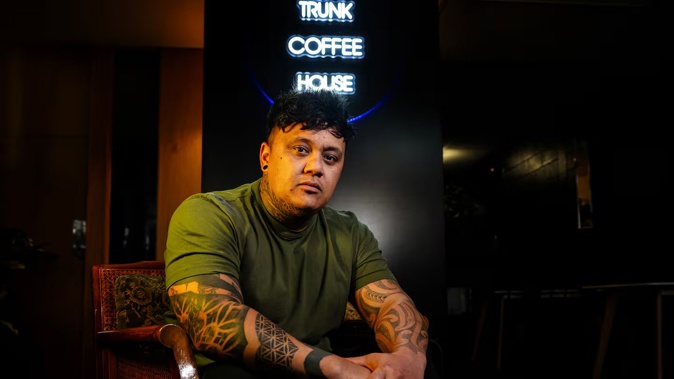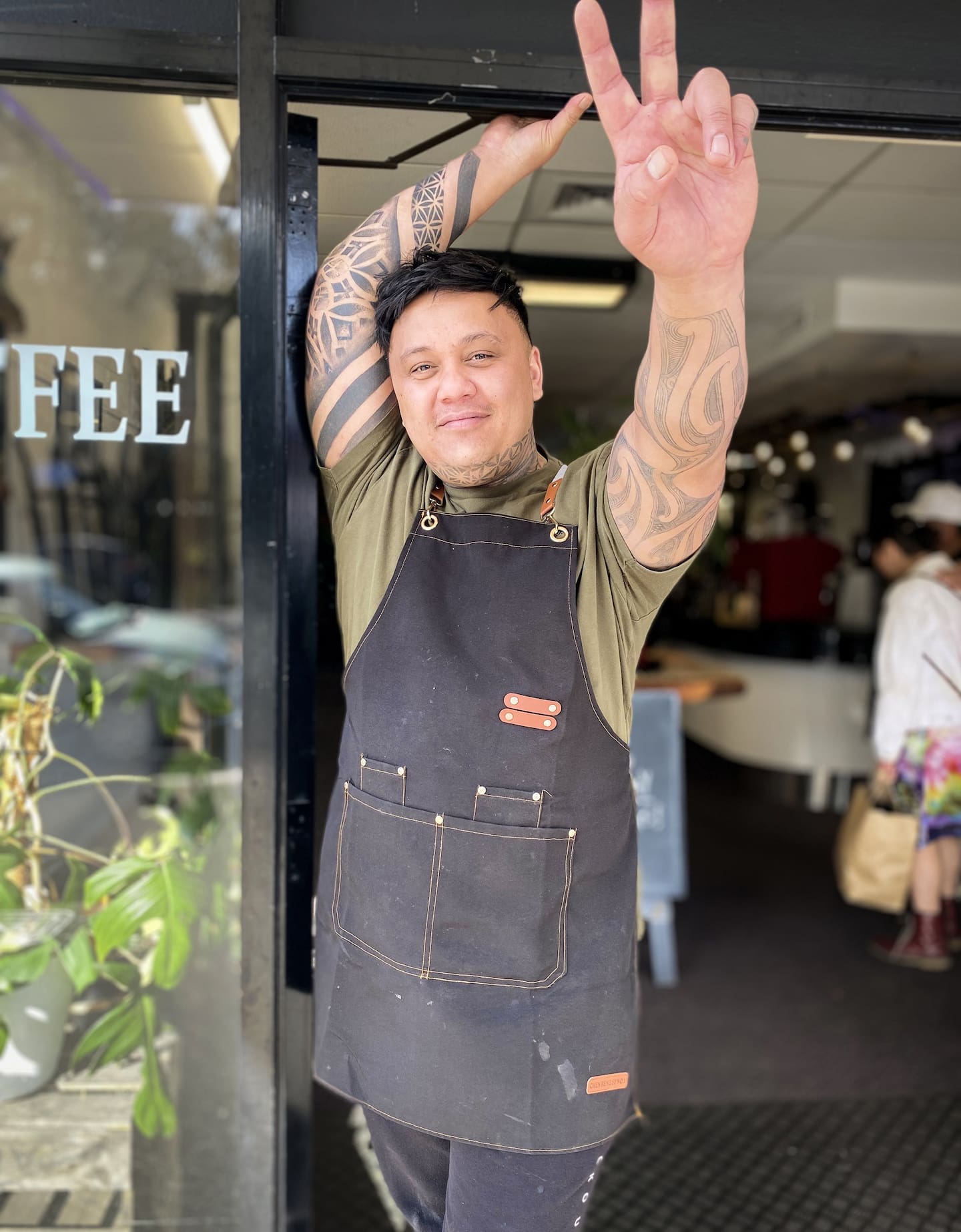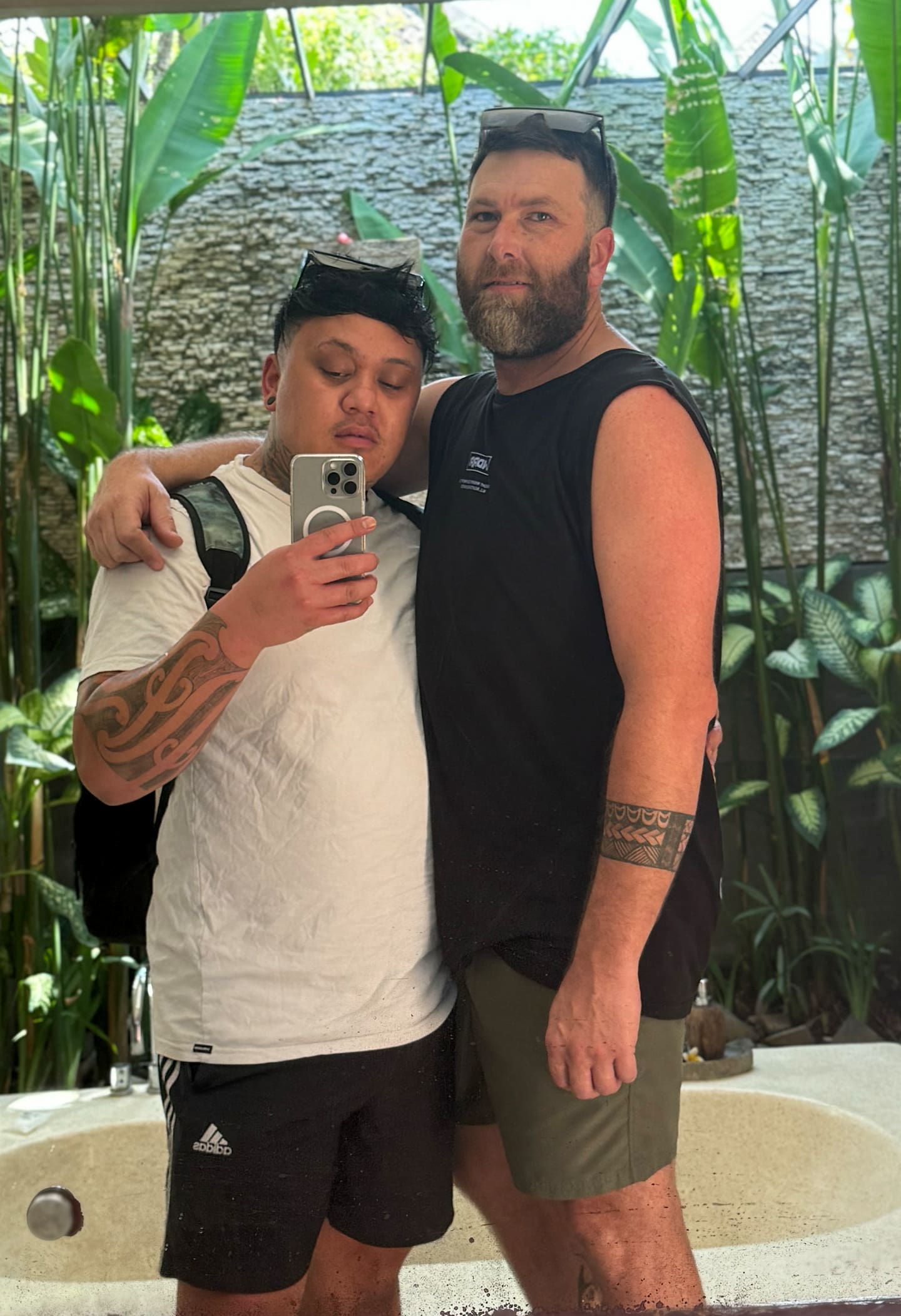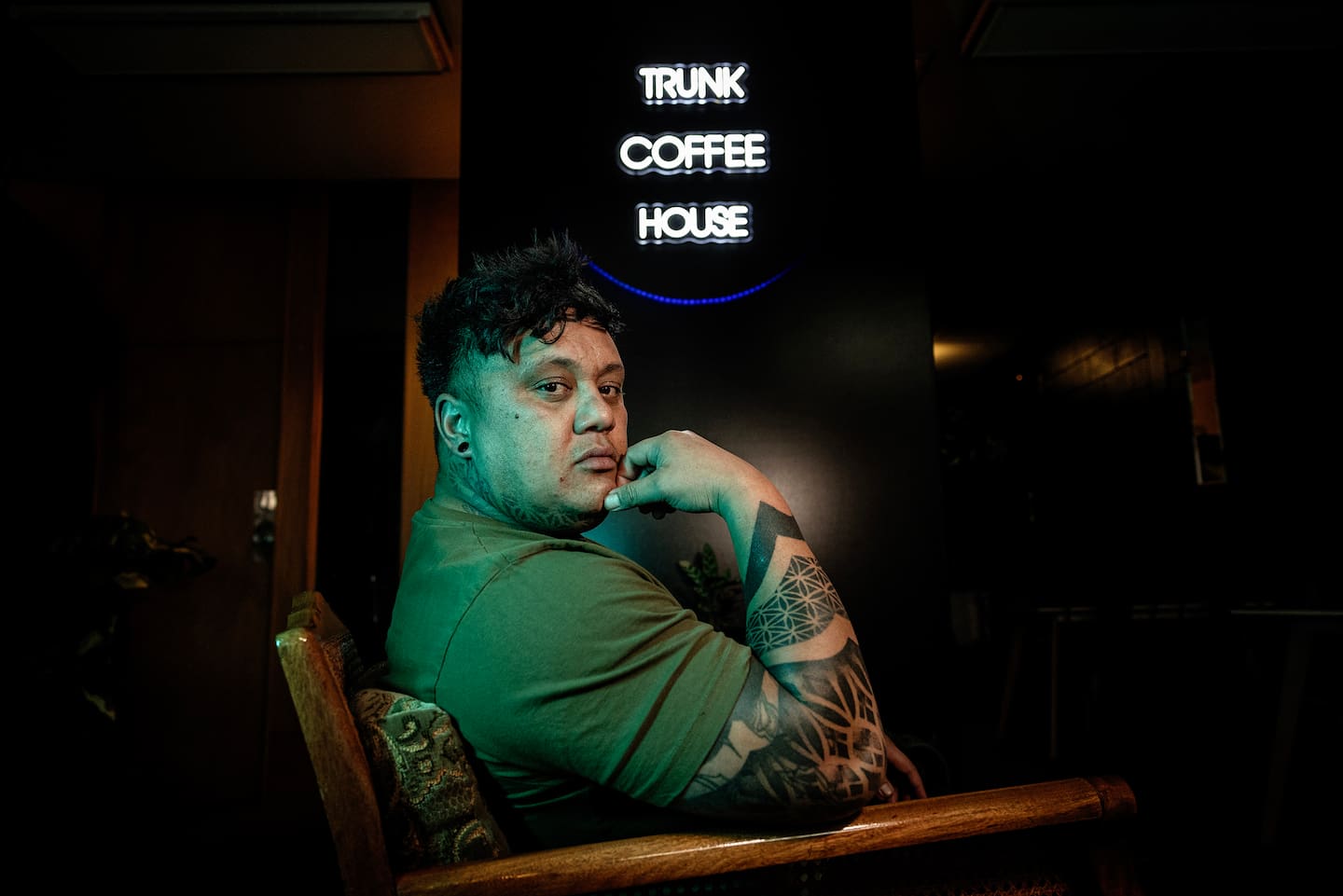
Rhys Eden Delamere is not one to sugarcoat his views, especially on youth boot camps: “Every naughty shit needs to go there.”
His blunt declaration reflects his image of his 20-year-old self as a ‘total loser’ and his belief in targeted tough love, shaped by personal experience – because for Delamere, boot camp worked.
It was his turning point, his ‘hail Mary’ of redemption. “I’m so glad I did it. So glad I did it. It’s a pivotal moment in your life,” he says.
Delamere delivers his candid assessment from his cafe in Taumarunui, where he envisions his future as a series of golden roads leading to bright lights. He acknowledges that the path behind him leads directly back to the day his parents enrolled him in a Limited Service Volunteer (LSV) course in 2012.
The six-week LSV courses, run by the New Zealand Defence Force (NZDF) and the Ministry of Social Development (MSD), are cited as the blueprint for the Government’s new 12-month military-style academy – commonly referred to as ‘boot camps’ for young offenders. An initial pilot is underway in Palmerston North.
Since National Party leader Christopher Luxon announced the ‘boot camp’ policy in 2022, it has run into a hail of opposition claiming boot camps don’t work, that they’re not evidence-based, and criticising the Government for being unable to guarantee that the young participants would be safe from abuse.
When the Herald sat down to chat with Delamere he admitted to being unaware of the new academy boot camps or the coalition’s policy for tackling youth crime, but said the general idea had his full support.
“It prepares you for life. And I think that when you come out of that camp, you need to stick to that. Stick to those foundations.”

Rhys Eden Delamere at his cafe Trunk Coffee House in Taumarunui. Photo / Alex Robertson
Delamere, 33, is a vibrant contradiction – tough and tame, funny and serious, staunch and soft. Never scary.
He’ll grab a broom with his massive tattooed arms and dance around it before it becomes his taiaha and he pulls a fierce pūkana.
Delamere is gay, Māori and embraces his unique character. “Honestly, I am out the gate – there’s not even a gate – I’m up the tree, off the clothesline.”
He says he’s comfortable in his skin, but he does react to online detractors and can be particular about photos.
He is determined to be himself, letting the judgement of others fold in the wind.
His life as a teenager was not comfortable in small-town Murupara in the remote Eastern Bay of Plenty.
As the oldest child Delamere was surrounded by a loving, supportive family – mum Melody, dad Edward and three siblings, including his sister Natalie who played for the winning Black Ferns 2021 Rugby World Cup team.
“I wasn’t the best when I was growing up. I think when I got to like a teenager, starting to figure myself out – when I mean figure myself out, like as in coming out gay – and finding it hard to be myself, in such a small community and being Māori.
“And obviously growing up in that small town, being gay is kind of frowned upon. You know, so I kind of went off the rails. And I kinda just started being a little f***head.
“Just making dumb decisions”.
Those decisions ranged from smoking weed to drinking and driving. He squandered sports opportunities – the NBA was his dream but he was dumped from a New Zealand basketball development team due to his behaviour.
He got into fights and attracted the attention of the police.
“That’s just the way it is. It’s just being young and dumb and girls and trying to prove yourself.
“The reason for my actions is I wasn’t being myself. You act in this certain manner to try and prove that you’re straight, but really, you’re not being your authentic self.”
Delamere is brutally self-critical, labelling his young self a ‘total loser’ “but I’m fine with it because guess what, that’s my past.”
When the chaos came to a head his parents suggested he enrol in the LSV course held a world away at Burnham Military Camp.
“It was the last straw”.

Despite having a supportive family, growing up gay in Murupara wasn't easy for Rhys Eden Delamere. Picture from top left, as a young boy, with his Nana Libya Heke Huata, with his mum Melody Delamere and his two cousins Derek and Kass. Photos / Supplied
LSV courses started in 1993 for 18 to 24-year-old eligible volunteers to get a fresh start, learn new skills and ultimately find employment. Hundreds of young people still roll through the programmes each year.
The NZDF uses a military method aimed at growing self-discipline, confidence and resilience.
It is not a holiday camp, which Delamere learned before even stepping on the grounds.
“These corporals came on the bus they said get the f..k off the bus.
“And I was like, I’m not getting off the f..king bus – don’t talk to me like that.”
And what happened?
Delamere stood alone and watched as every other participant was made to do 50 push-ups.
In his first moment, he realised his attitude was not the way to win friends or succeed because others would suffer.
This first lesson was just the beginning. The tipping point was on day two when his platoon sat in a circle and shared personal backgrounds.
“The stories I heard broke my heart – instantly.”
They were accounts of gang families, drugs and rape. One was from the person who would become his best mate and he’d watched his mum die.
“And then they come round to me, and I’m just sitting there like, just a spoilt little brat.
“My Mum and Dad have given me the world, all they’ve tried to do is good by me, and I just threw it in their faces.”
Sitting there, stung by humility, Delamere felt an urgent need to apologise to his whānau.
During the next six weeks, revelling in early morning starts, strict protocols and fitness discipline, Delamere excelled and earned multiple prizes and accolades and finished with a job in Christchurch.
Taumarunui is not a world away from Murupara.
Although his new home is a bit larger, it’s still a North Island rural town with green hilly horizons and a country vibe and Delamere moved in for love.
Almost smack bang in the middle of the main drag, which is bustling when the Herald visits, he runs Trunk Coffee House, one of three businesses he operates with his partner Glen Bason.

Delamere credits his partner Glen Bason for giving him the support he needs to pursue his goals. Photo / Supplied
His current mission is to boost the social media presence of @trunkcoffeehouse, which feature his own mix of absolute hilarity, soul-searching and inspiration.
During the past year, his TikTok, Instagram and especially Facebook have started to kick off, getting hundreds of thousands of views, enough for Delamere to get promotional work.
He also has dedicated followers who feel a connection.
“People are reaching out to me with heavy stories and watching me helps them.
“It’s heavy on my shoulders but at the same time I’m glad to be doing it.”
Recently, old schoolmates visited with a cohort of Murupara youth set up for a motivational talk.
Delamere got down on their level and headed off their get-rich-quick schemes.
“I said, you don’t have to be a drug dealer to be a millionaire. Yeah, so put your mind to it.
“They started coming up with careers, like, I want to be a builder, I want to be a logging truck driver.”
He also told them he wanted to be a multi-millionaire in 10 years by starting more businesses and working hard.
“What do you want to be in 10 years? Where do you see yourself? You know, that kind of made, maybe had a little switch in their head.”
Delamere can envision the future pathways of young people all forked with choices and potholed with challenges – much like the road he once travelled.
For him, the best way he can see to clear the way is by sharing his story.

Growing up gay in remote Murupara wasn't easy but Rhys Delamere is now happy in his skin. Photo / Mike Scott
The LSV camps are not for everyone.
Some of Delamere’s co-participants dropped out, dipped back into drugs or even ended up in jail, he says.
Figures released by MSD show 70% of the participants completed the full six-week courses between 2018 and 2023.
An independent review of the LSV conducted for the Minister of Defence in 2018 found that 13 to 18 weeks after a Burnham-based course, 52% of trainees were working and 16% were studying.
It claimed the figures are fairly consistent with MSD’s outcomes data, which recorded off-benefit outcomes of 56% at the 16-week point for all LSV programmes in 2016-17.
Despite LSVs being touted as the blueprint for the coalition Government’s new military academies, there are vast differences.
For a start, the first pilot, which started in late July, runs for 12 months and does not involve voluntary applications.
Ten teenagers, already housed in youth justice residences and who have two convictions with a sentence of at least 10 years, have been selected after clinical assessment and consultation with their families and Family Court judges.
While NZDF has assisted with training, the course will be run by Oranga Tamariki and their staff.
“There’s no harm in trying,” says Delamere.
“I would love to speak about this. I would speak about this in front of the whole of New Zealand, of why I think... it’s a good opportunity.
“All these re-offenders need this because they need to get out of their bad habits.
“You know what I mean? Get away from it, brother. Get away from it.”
Take your Radio, Podcasts and Music with you









